Disclosure: This article contains affiliate links. We may earn a commission from purchases at no extra cost to you, which helps our travel content.
The morning light in Asmara hits differently – casting long shadows across Italian-designed facades that feel simultaneously out of place and perfectly at home in this corner of East Africa. My running shoes hit the pavement at dawn, each stride revealing another architectural marvel that most travelers have never heard of. This city – Eritrea's capital – isn't on most budget travelers' radar, but that's precisely why it should be. After volunteering with post-conflict communities across the Horn of Africa, I carved out a week to explore what UNESCO calls 'Africa's Modernist City,' a place where Futurist, Rationalist, and Art Deco buildings stand frozen in time since Italy's colonial era. What I discovered was a city of contradictions: strict visa policies yet welcoming locals, limited tourist infrastructure but endless cultural riches, and a place where your dollar stretches remarkably far once you're on the ground. This is my guide to experiencing Asmara authentically without breaking the bank.
Navigating Eritrea's Entry Requirements
Let's address the elephant in the room: getting into Eritrea isn't straightforward. As someone who's navigated complex visa situations for volunteer deployments across four continents, I can tell you Eritrea ranks among the more challenging entry points. But the bureaucratic hurdles are worth clearing.
You'll need to secure your visa before arrival, which means working with an Eritrean embassy or consulate in your home country. The process typically requires a letter of invitation from an Eritrean tour company or contact. I connected with a local guide named Tekle through a fellow marathon runner who'd previously visited, which streamlined things considerably. Budget around $70-100 for the visa itself.
Once approved, you'll need to register with immigration within three days of arrival and obtain a travel permit for movements outside Asmara. This sounds intimidating, but in practice, your local contact can handle much of this. I kept all my documents organized in a slim travel document organizer which proved invaluable when officials requested papers at various checkpoints.
The entry process might seem daunting, but view it as your first lesson in Eritrean patience – a quality you'll come to appreciate as you adjust to the country's rhythms.
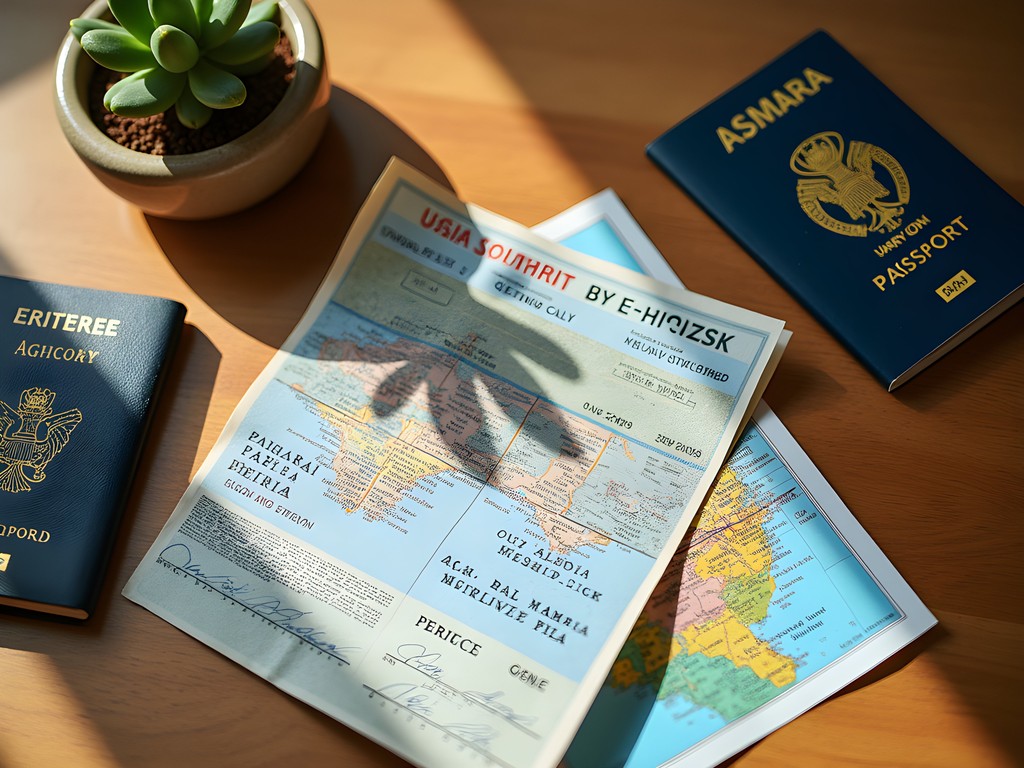
💡 Pro Tips
- Apply for your visa at least 8 weeks before travel
- Always carry your travel permit and passport when moving around
- Keep digital and physical copies of all documentation
Finding Budget Accommodation in a Non-Backpacker City
Asmara isn't lined with hostels or backpacker hangouts, which initially concerned my budget-conscious soul. The city caters primarily to business travelers and the Eritrean diaspora returning to visit family. However, this doesn't mean affordable options don't exist – they're just not advertised on major booking platforms.
My home for the week was Sunshine Hotel, a modest but clean establishment near the city center charging about $25/night. Nothing fancy, but the staff treated me like family by day three, brewing traditional coffee each morning and offering insider tips on neighborhood eateries. For those seeking even more budget-friendly options, several family-run guesthouses operate in the residential areas surrounding Liberation Avenue, with rooms from $15-20 nightly.
What these accommodations lack in amenities, they make up for in location and authenticity. I spent evenings on my small balcony watching the distinctive rhythm of Asmara street life unfold – elderly men playing dominoes, teenagers sharing a single pair of earbuds while nodding to music, and the occasional vintage Fiat puttering by.
One unexpected luxury: Asmara's 7,600-foot elevation means cool, comfortable nights even during warmer seasons. I slept with windows open, using the lightweight sleeping bag liner I bring on all my travels – perfect for beds where linens might be questionable (though mine were surprisingly clean).
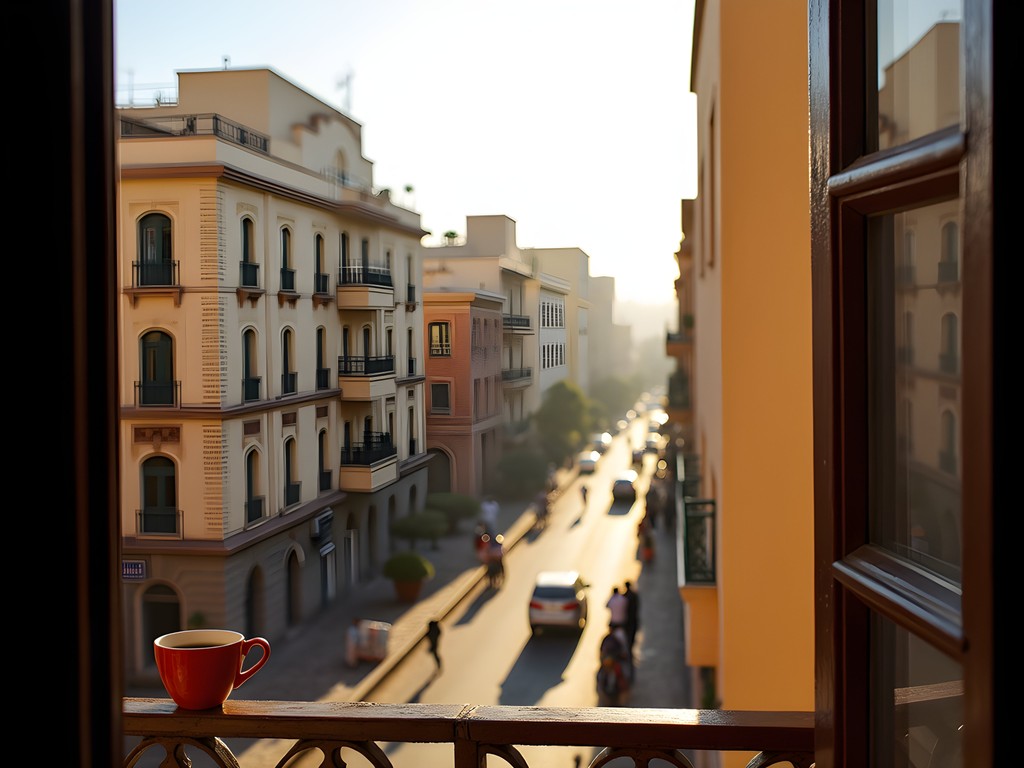
💡 Pro Tips
- Ask your local guide to call smaller guesthouses directly for better rates
- Negotiate multi-day discounts for stays of 3+ nights
- Look for accommodations near Liberation Avenue for easy access to main attractions
Architectural Marathon: Self-Guided Walking Tours
As a marathon runner, I've developed a habit of exploring new cities on foot, treating urban landscapes as my personal race course. Asmara is perfectly suited for this approach – compact, walkable, and filled with architectural surprises around every corner.
I created my own daily running/walking routes that doubled as architectural tours. The city's layout is remarkably pedestrian-friendly, with wide boulevards and minimal traffic. Each morning, I'd lace up my running shoes before dawn and put in 5-7 miles, watching the city wake up while documenting modernist masterpieces bathed in golden hour light.
The crown jewel is the Fiat Tagliero Building – a futurist structure resembling an airplane poised for takeoff. Built in 1938, this former service station stands as the world's most audacious example of futurist architecture. I timed my visit for late afternoon when shadows accentuate its dramatic cantilevers.
Other must-see structures include the Cinema Impero with its Art Deco façade, the Romanesque Asmara Cathedral, and the former Opera House. What makes these buildings remarkable isn't just their design but their preserved condition – when Italy's colonial presence ended, the architecture remained frozen in time, creating an open-air museum of early 20th-century modernism.
I tracked my architectural explorations using my trusty GPS running watch, which not only logged my daily mileage but created GPS maps I could reference later. This proved invaluable for retracing my steps to buildings I wanted to photograph in different light.
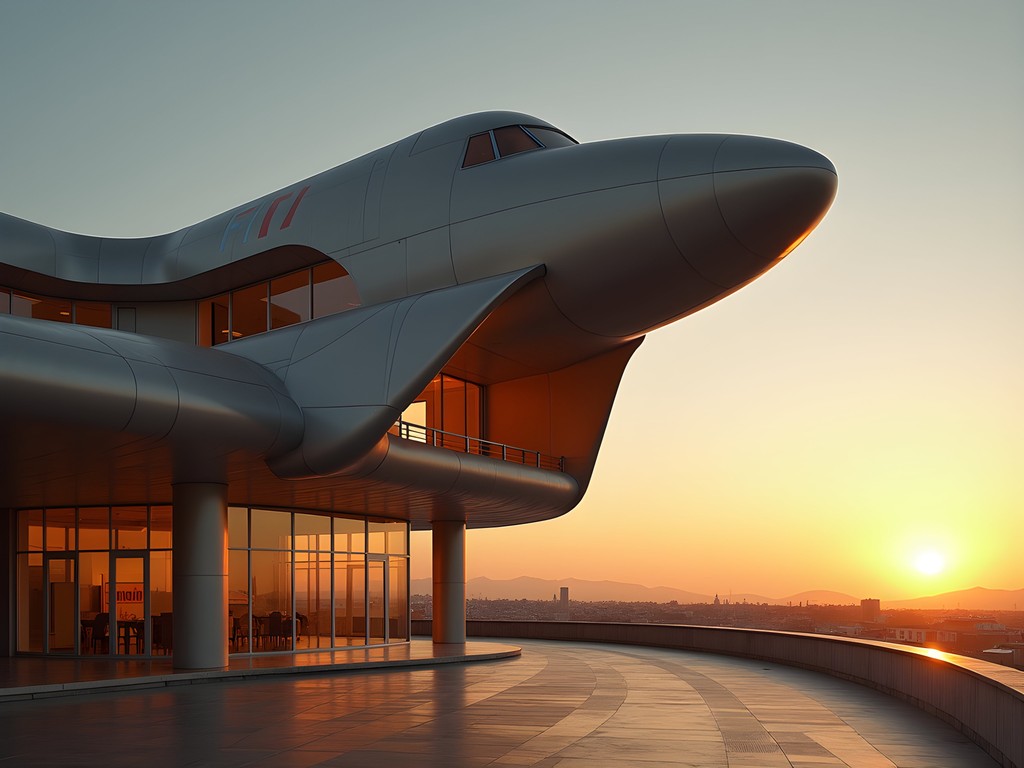
💡 Pro Tips
- Start architectural walks early to avoid midday heat and catch the best light for photos
- The Cinema Roma often screens films on weekends – check local listings
- Visit the Fiat Tagliero Building at sunset for dramatic shadows
Vinyl Hunting in Unexpected Places
Few travelers know that Asmara harbors a fascinating musical heritage, particularly from the 1960s and 70s when Eritrean jazz and funk flourished. As someone who seeks out record stores in every city I visit, hunting down Asmara's musical artifacts became a personal mission.
My first discovery came accidentally while exploring a side street off Harnet Avenue. A small shop with no formal signage displayed a few dusty record covers in the window. Inside, the elderly owner, Dawit, maintained a modest collection of Eritrean and Ethiopian vinyl – including treasures from the golden age of Asmara's jazz scene. Despite our language barrier, music became our common tongue as he played selections on a vintage turntable.
Through Dawit's recommendations, I found my way to a weekend market near the Mai Jah Jah neighborhood where occasional vendors sell second-hand records. Here, I uncovered a pristine copy of Eritrean legend Abraham Afwerki's recordings – a find that had me grinning for days.
Transporting vinyl safely while traveling can be challenging. I always pack a collapsible record carrying case that folds nearly flat in my luggage until needed. This protected my musical souvenirs through multiple flights and bumpy land crossings.
Beyond the physical records, these musical excavations connected me with locals who shared stories of Asmara's cultural heyday – tales of jazz clubs where Italian architectural spaces vibrated with distinctly African sounds, creating something uniquely Eritrean.
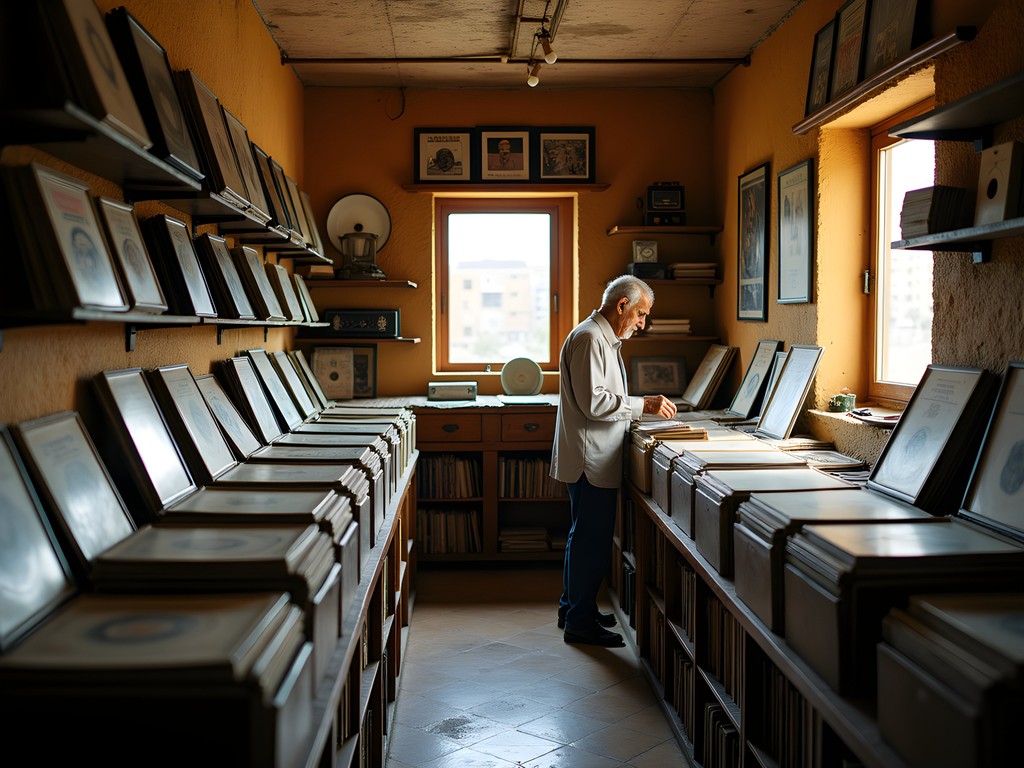
💡 Pro Tips
- Learn basic Tigrinya phrases related to music to help communicate with record shop owners
- Visit the weekend market near Mai Jah Jah neighborhood for second-hand vinyl
- Look for recordings by Abraham Afwerki and Bereket Mengisteab
Eating Like a Local: Asmara on a Budget
Food in Asmara reflects its unique historical position – Italian colonial influence layered over traditional East African cuisine creates something entirely distinctive. The best part for budget travelers? You can eat remarkably well for very little.
Injera, the sourdough flatbread that serves as both plate and utensil, forms the foundation of most meals. At local restaurants like Ghibabo, a massive injera topped with several wat (stew) varieties costs around $3-5 and easily feeds two. The berbere-spiced dishes build a slow, pleasant heat that's perfect fuel for long walking days.
Asmara's Italian heritage shines through its café culture and pasta dishes. Bar Vittoria near the Roman Catholic Cathedral serves espresso that rivals anything in Rome for a fraction of the price (about 30 cents). Their pasta dishes – often with unique Eritrean twists like berbere-spiced sauce – run $2-4 for generous portions.
Street food provides the most economical option. Sambusas (similar to samosas) filled with lentils or meat make perfect walking snacks at about 25 cents each. For breakfast, I became addicted to ful – a fava bean dish with olive oil, onions and berbere served with fresh bread for scooping, available from morning street vendors for about $1.
To stay hydrated while exploring, I relied on my water filter bottle which allowed me to safely refill from any source. This saved both money and reduced plastic waste in a city where recycling infrastructure is limited.
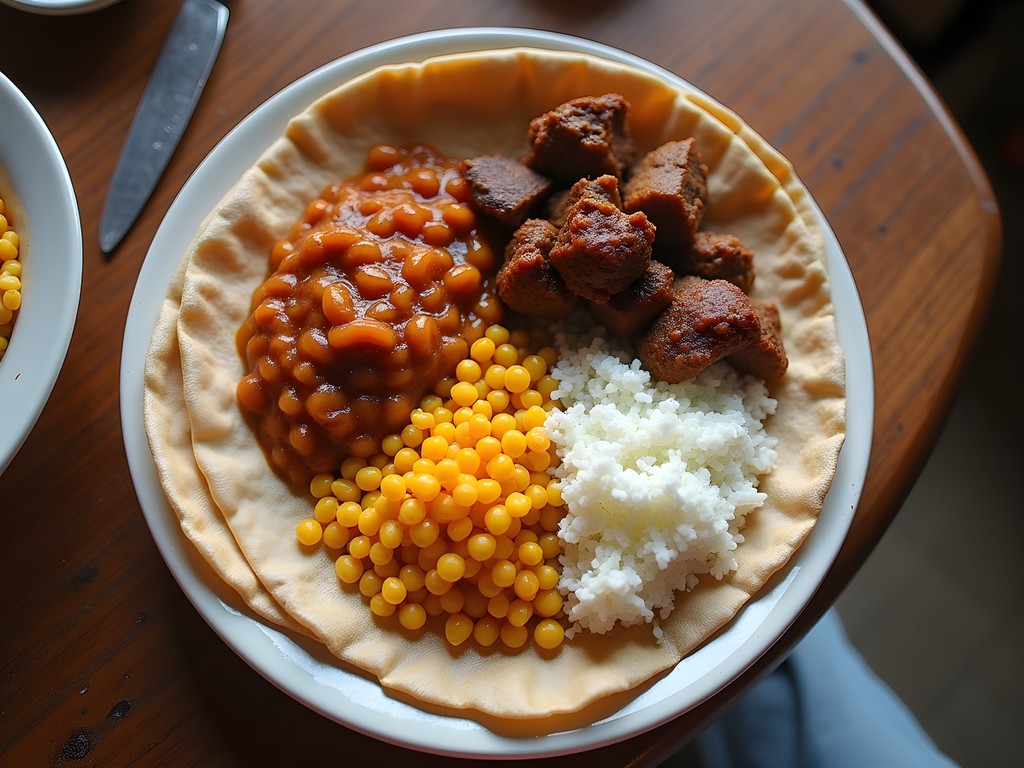
💡 Pro Tips
- Ask for 'kurt' (a smaller portion) if you're eating solo to avoid food waste
- Try the macchiato at Bar Vittoria – an Italian-Eritrean hybrid coffee preparation
- Most restaurants are closed on Monday – plan accordingly
Spiritual Spaces: Asmara's Monasteries and Churches
My travels have always led me to spiritual centers, finding them to be windows into a culture's soul. While Asmara's modernist architecture initially drew me here, it was the city's religious spaces that provided the deepest connections.
Debre Bizen Monastery, located about 25km from Asmara, became my most meaningful day trip. Perched dramatically atop a mountain, this Orthodox monastery dates to the 1350s. The journey there requires either hiring a driver (around $30 round-trip) or catching a series of local minibuses and walking the final stretch – I chose the latter adventure, spending about $5 total.
Women travelers note: traditional rules prevent women from entering the monastery grounds, though the journey and views remain worthwhile. As a male traveler, I was permitted entry after covering my legs and removing shoes. Inside, monks showed me ancient manuscripts and religious artifacts preserved for centuries. The monastery maintains a vow of vegetarianism, and visitors can share a simple meal with the monks – one of the most authentic experiences of my trip.
Closer to Asmara's center, the Nda Mariam Othodox Church offers a more accessible spiritual experience. Its distinctive architecture blends Italian influences with Ethiopian Orthodox traditions. I timed my visit to coincide with Sunday services, where the rhythmic chanting and ceremonial movements created a meditative atmosphere unlike anything in Western religious practices.
For these visits to religious sites, I always pack a quick-dry travel towel that doubles as a head covering or wrap for shoulders when modest dress is required. This ultralight addition to my daypack has proven invaluable across religious sites worldwide.
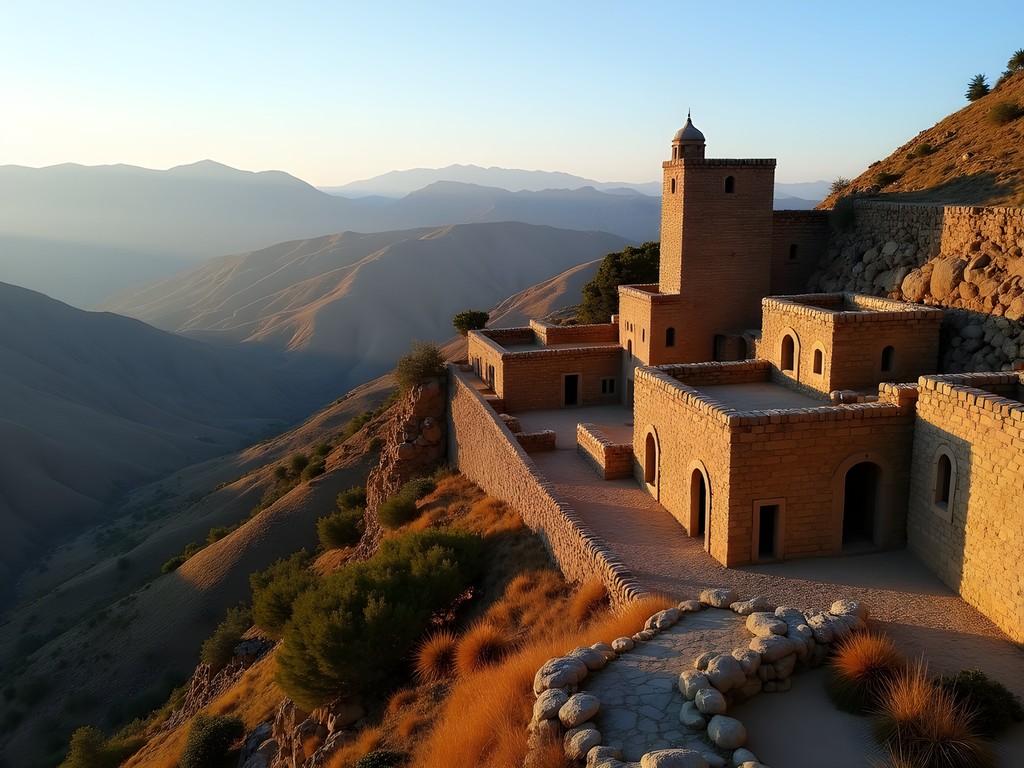
💡 Pro Tips
- Dress modestly when visiting religious sites – covering shoulders, knees and head
- Remove shoes before entering Orthodox churches
- Ask permission before taking photos inside religious buildings
Final Thoughts
As my week in Asmara drew to a close, I found myself running one last dawn loop through the city center, mentally cataloging the buildings, flavors, and conversations I'd experienced. Eritrea challenges the traveler – through its entry requirements, limited infrastructure, and complex political realities – but rewards persistence with unparalleled authenticity. In a world where overtourism threatens to homogenize travel experiences, Asmara remains refreshingly itself, neither performing for visitors nor bending to external expectations. This is budget travel at its most meaningful: where financial limitations become a pathway to deeper connections rather than a constraint. As I boarded my flight home, records carefully packed and running shoes dusty with Asmara's distinctive red soil, I realized that the city had offered what I seek in every destination – not just sights to see, but rhythms to absorb and stories to carry forward.
✨ Key Takeaways
- Asmara offers extraordinary architectural heritage without the crowds or costs of more popular destinations
- Budget travel here requires more advance planning but rewards with deeper cultural experiences
- The city's unique blend of Italian colonial architecture and East African culture creates a truly singular atmosphere
📋 Practical Information
Best Time to Visit
September to April (dry season)
Budget Estimate
$30-50 per day including accommodation, food and activities
Recommended Duration
5-7 days
Difficulty Level
Challenging

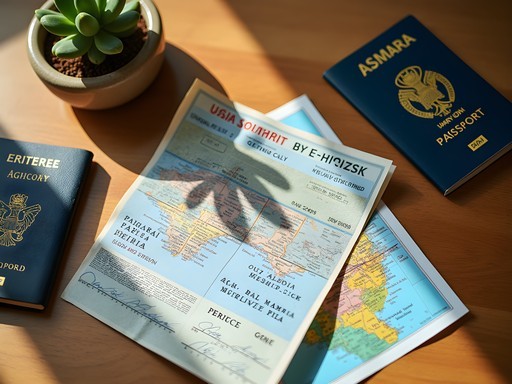
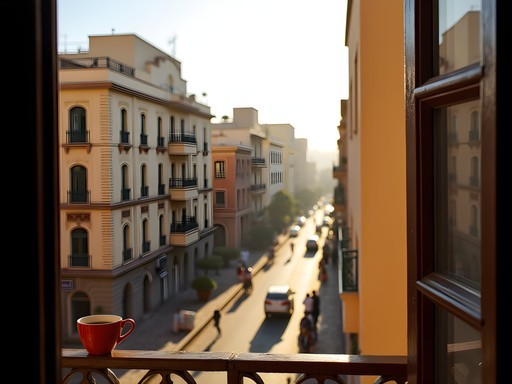
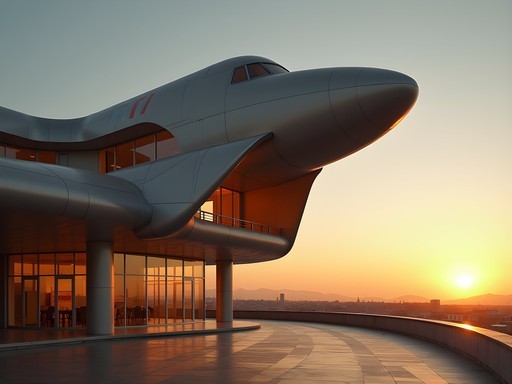
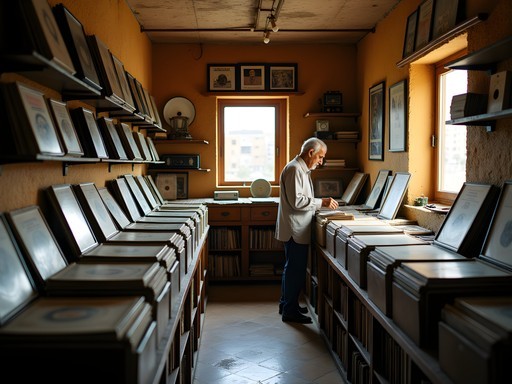
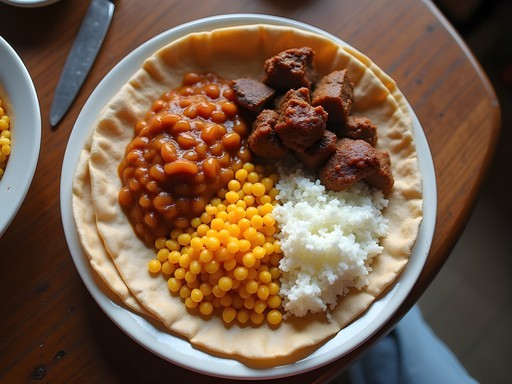
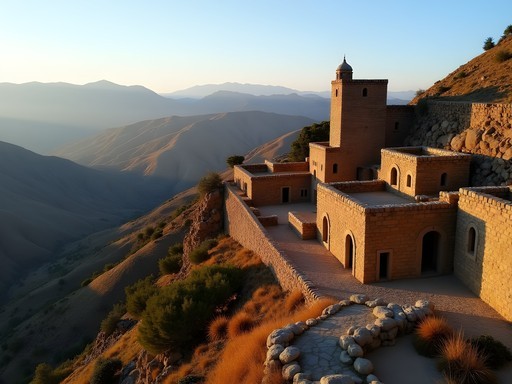


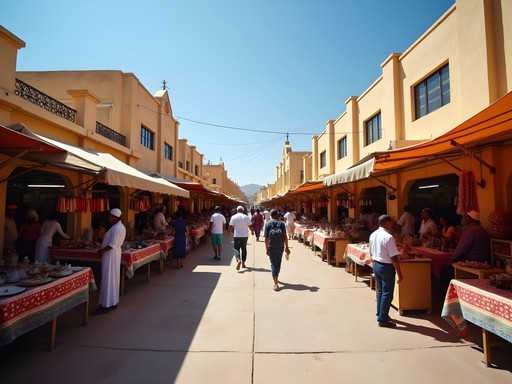

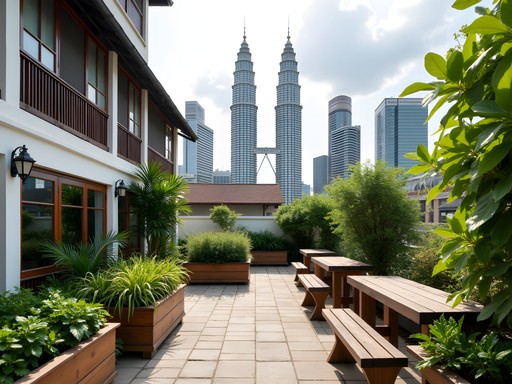
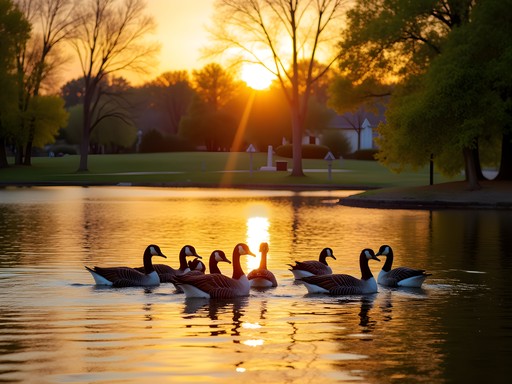
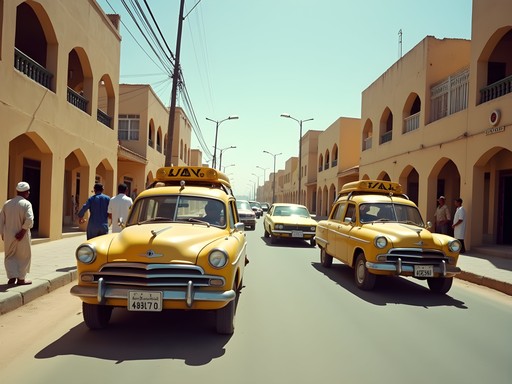
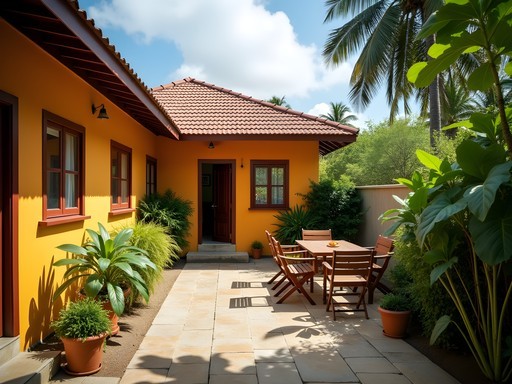
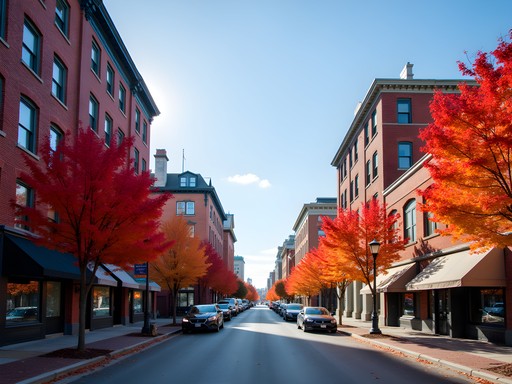
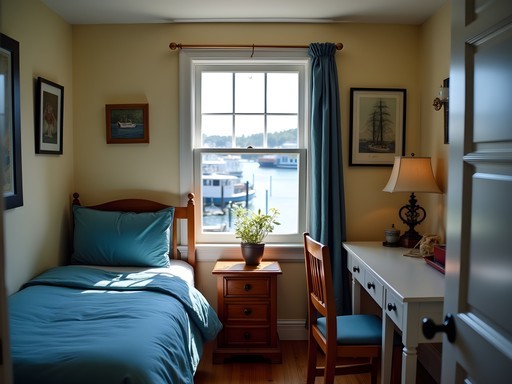
Comments
citylegend
Never considered Eritrea before but your photos of those Art Deco buildings are making me rethink my travel list! Absolutely stunning architecture!
travelgal
How difficult was it to get around with just English? Planning to visit but worried about language barriers.
Mason Sullivan
In the city center, you'll find enough English speakers, especially younger people and those working in tourism. Learning a few Tigrinya phrases helped a lot though - people really appreciated the effort!
Kimberly Murphy
Mason, your budget breakdown for Asmara is incredibly helpful! I'm planning a trip through the Horn of Africa next year and wasn't sure if Eritrea was feasible on my budget. One tip I'd add for other travelers - I found that booking accommodation through local contacts saved me nearly 30% compared to online rates. The Eritrean diaspora community is incredibly helpful if you can connect beforehand. I used my travel journal to keep track of all these local contacts and recommendations - absolute lifesaver when internet was spotty!
wildphotographer
Those sunrise shots of the futurist buildings are incredible! Perfect lighting. What time did you have to get up to catch that golden hour?
Mason Sullivan
Thanks! I was up at 5:30am - the light was perfect around 6:15-6:45 this time of year. Worth the early alarm!
Hunter Thompson
Mate! Brilliant post about Asmara! I backpacked through Eritrea last winter and your self-guided architecture tour route is spot on. The Cinema Impero was my absolute favorite - proper time capsule vibes! For anyone heading there, I'd add that the public buses are dead cheap and surprisingly reliable for getting to some of the outlying modernist buildings. Just bring small notes as they rarely have change. The vinyl hunting section brought back memories - found some Ethiopian jazz records that are now prize possessions!
islandfan
I visited Asmara last year and was blown away by the architecture! The visa process was a pain though - took me nearly 3 weeks longer than expected. Did you find any good coffee spots beyond the ones you mentioned? The Italian influence on their cafe culture was one of my highlights.
Mason Sullivan
Bar Moderna was my go-to! Tiny place near the Catholic Cathedral with incredible macchiatos for less than a dollar. The owner has a collection of old Italian coffee equipment that's fascinating.
islandfan
Can't believe I missed that one! Adding it to my list for next time.
summerace
Adding this to my bucket list!! 🙌
wildclimber
What was the budget accommodation like? Is there hostels or just hotels?
Marco Flores
Not Mason but I was there last year - there aren't really hostels like you'd find in other backpacker destinations. I stayed at a small guesthouse near the cathedral for about $15/night. Basic but clean. The owner's family ran it and they were incredibly welcoming. Asmara isn't set up for backpackers the way other African cities are, but that's part of its charm honestly.
photostar6934
Really cool photos! That Fiat Tagliero station is wild
Bryce Diaz
Mason, this brought back memories! I spent 10 days in Asmara back in 2019 and had a similar experience with the architecture. One thing I'd add for budget travelers - the local buses are dirt cheap (like 5 nakfa) and the conductors were incredibly helpful pointing me toward the art deco buildings I wanted to see. Also, if you're into that vinyl hunting scene you mentioned, there's a small shop near Cinema Impero that I stumbled into - owner had some incredible Ethiopian jazz pressings from the 60s. The whole city feels like stepping into a time capsule. Did you make it to the train station ruins outside the city?
Mason Sullivan
Bryce! Yes, the train station was incredible. I actually went on my last morning run and the light was perfect. And I think I found that same vinyl shop - was it run by an older guy named Yohannes? He played me some Mahmoud Ahmed tracks that I'm still thinking about. The local buses were a highlight for sure.
Venture X
Premium card with 2X miles, $300 travel credit, Priority Pass